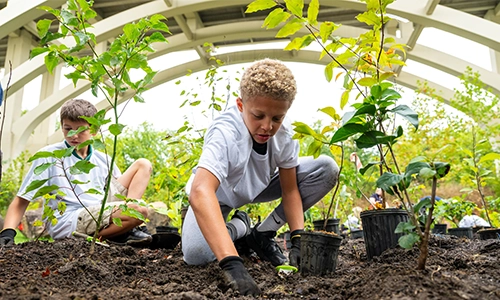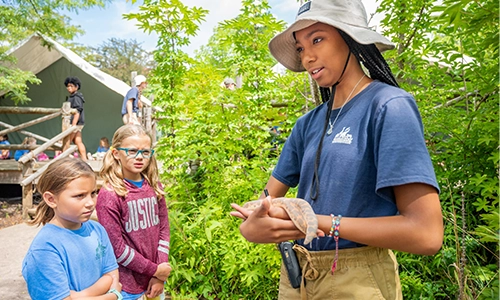-

Our Community
Discover the ways Cleveland Metroparks Zoo innovates at the intersection of people, wildlife and the environment to secure a healthy future for our planet.
-

Community Engagement Programs
Check out the latest programs designed for youth who are passionate about wildlife, leadership and workforce development.
-

Community Engagement Outreach Request
The Zoo's Community Engagement Team offers a variety of outreach programs from career talks and educational programs to visits to community events. Would you like the Engagement Team to visit your community or school? Please fill out the request form.
